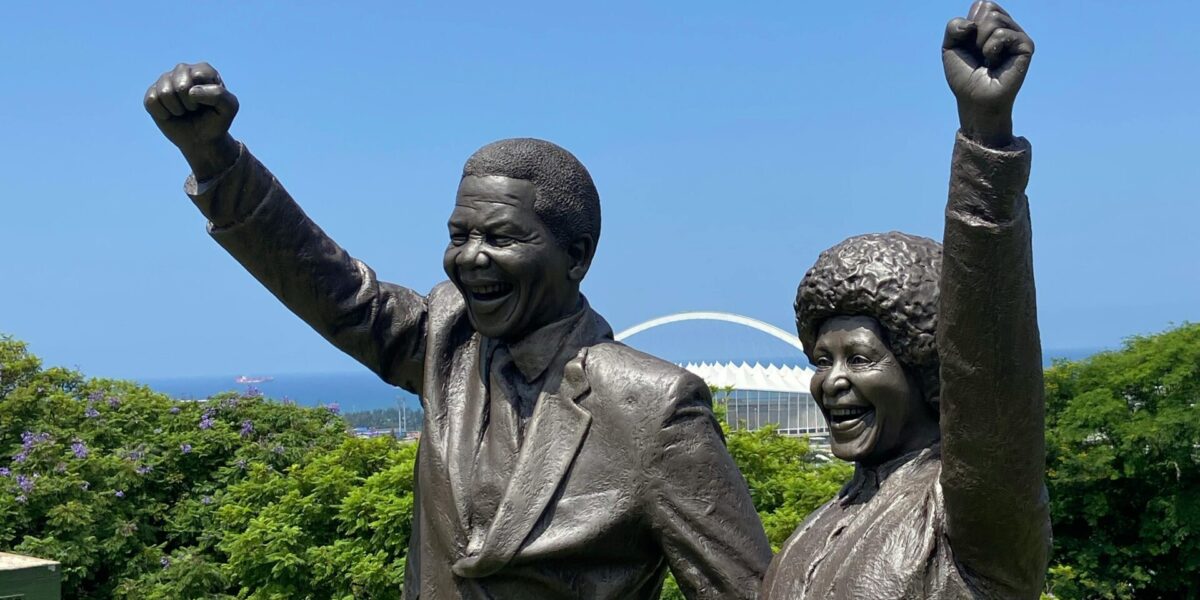- July 1, 2025
- By apf-user
- Building Peace, Peace Resolution
- (0) Comment
Africa’s modern history is shaped by the bravery of men and women who stood up against colonialism, exploitation, and injustice. These revolutionary leaders mobilized their people, led independence movements, and laid the foundation for self-rule across the continent. Many were martyred, assassinated, or lived under constant threat for challenging the global power structure. Here are ten iconic African leaders who fought for the soul of Africa—along with how they lived, ruled, and died.
1. Kwame Nkrumah – Ghana (1909–1972)
Role: First Prime Minister and President of Ghana
Legacy: Led Ghana to independence from Britain in 1957—the first sub-Saharan African country to do so. He was a pan-Africanist and visionary who pushed for African unity.
Died by: Prostate cancer while in exile in Romania (1972)
2. Patrice Lumumba – Democratic Republic of Congo (1925–1961)
Role: First Prime Minister of independent Congo
Legacy: Fought Belgian colonial rule and sought a united Congo. Seen as a martyr of African liberation.
Died by: Assassination—executed by firing squad in a coup backed by Belgian and Western interests (1961)
3. Thomas Sankara – Burkina Faso (1949–1987)
Role: President of Burkina Faso (1983–1987)
Legacy: Known as “Africa’s Che Guevara,” he was a Marxist revolutionary who implemented radical reforms—land redistribution, anti-corruption, and women’s rights.
Died by: Assassinated during a coup led by his close friend Blaise Compaoré (1987)
4. Nelson Mandela – South Africa (1918–2013)
Role: President of South Africa (1994–1999)
Legacy: Led the anti-apartheid movement and became the first Black president of South Africa. A symbol of peace and reconciliation.
Died by: Natural causes (respiratory infection) at age 95 (2013)
5. Amílcar Cabral – Guinea-Bissau & Cape Verde (1924–1973)
Role: Leader of the PAIGC liberation movement
Legacy: Fought Portuguese colonial rule through armed resistance and revolutionary ideology. He became a global symbol of anti-imperialism.
Died by: Assassinated in Conakry by rivals suspected to be aligned with Portuguese intelligence (1973)
6. Samora Machel – Mozambique (1933–1986)
Role: First President of Mozambique (1975–1986)
Legacy: Fought Portuguese colonial rule and led the country after independence. Championed socialism and pan-Africanism.
Died by: Plane crash under mysterious circumstances near the South African border—widely suspected sabotage by apartheid regime (1986)
7.Muammar Gaddafi – Libya (1942–2011)
Role: Leader of Libya (1969–2011)
Legacy: Seized power in a bloodless coup and ruled Libya for over 40 years. Gaddafi was a complex and controversial figure: while criticized for authoritarianism, he also transformed Libya into one of Africa’s most developed nations during his reign. Internationally, he was a staunch advocate of African unity, proposing a “United States of Africa” and funding numerous pan-African initiatives.
Died by: Assassinated during the NATO-backed Libyan uprising—captured and killed by rebel forces in Sirte (2011)
8. Julius Nyerere – Tanzania (1922–1999)
Role: First President of Tanzania (1964–1985)
Legacy: Promoted Ujamaa (African socialism) and pan-African unity. Played a pivotal role in decolonizing southern Africa.
Died by: Leukemia while receiving treatment in London (1999)
9. Murtala Ramat Mohammed – Nigeria (1938–1976)
Role: Head of State of Nigeria (1975–1976)
Legacy: A bold reformer who challenged corruption, restructured Nigeria’s civil service, and made sweeping moves for African liberation. Internationally, he took a strong stance against apartheid and colonialism—especially in Angola, where he defied Western powers to support African freedom fighters. He laid the groundwork for Nigeria’s assertive foreign policy in Africa.
Died by: Assassinated in a military coup attempt in Lagos—ambushed in traffic and gunned down (1976)
10. Ahmed Sékou Touré – Guinea (1922–1984)
Role: First President of Guinea (1958–1984)
Legacy: Declared immediate independence from France in 1958. Though praised for anti-colonial stance, his rule was later marked by repression.
Died by: Heart attack while undergoing surgery in the U.S. (1984)
Conclusion:
These leaders were more than politicians—they were the architects of modern African identity and sovereignty. While some died in glory and others in tragedy, their courage continues to inspire the ongoing struggle for justice, dignity, and true independence across the continent.

